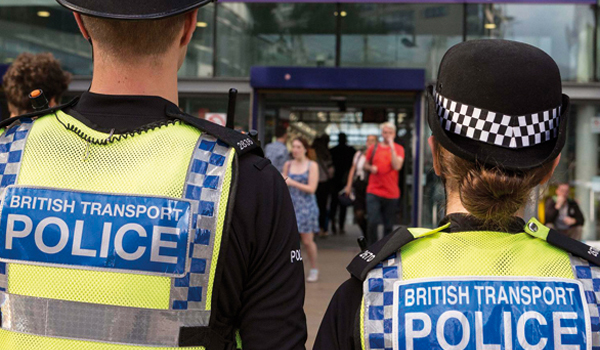Protest laws strengthened against dangerous disruption on transport network
New measures to crack down on disruptive protestors came into force on Sunday (July 2), including expanded police powers and a new criminal offence of tunnelling.
British Transport Police (BTP) and Ministry of Defence Police will now have powers to move on ‘static’ protests. This includes placing conditions on public assemblies and single person protests.
Home Secretary Suella Braverman said the moves will help police clamp down on “the mayhem we’ve seen on our streets” and the dangerous disruption of the transport network.
A new criminal offence of obstruction of major transport works carries a maximum penalty of six months in prison and/or an unlimited fine.
From Sunday, anyone found guilty of of tunnelling or “being present in a tunnel to cause serious disruption” will face up to three years in prison and/or an unlimited fine.
Being found guilty of taking equipment to tunnel will carry a maximum penalty of six months in prison and/or an unlimited fine.
Protections have also been reinforced for journalists specifying that the police cannot use their powers solely to prevent a person from reporting on or observing protests.
The Home Office says the new criminal offences and police powers now in force, backed by tough penalties, are designed to “stop protesters interfering with our daily lives and the transport network”.
It added: “Disruptive and dangerous protests on our roads and railways can now be stopped more quickly as powers to move on activists are extended to other police forces. From Sunday, BTP can now place conditions on static protests such as requiring activists to move off the road.
“With the Metropolitan Police Service estimating protest activity is swallowing up 150 officers a day, this move will mean our transport police can act independently and do not need to wait for regional police forces to act.
“This will ensure people can get to work and police officers can spend more time patrolling the streets, preventing offences such as theft and protecting our communities.”
Sunday’s announcement comes after the Government delivered clarity for police officers to define slow marching as “seriously disruptive”, building on measures the Public Order Act already brought in to stop highly-disruptive protests.
Earlier in the spring, the Public Order Act criminalised interfering with key national infrastructure, such as roads, airports and railways, and locking-on to others, objects or buildings.
The Government is also taking action to protect future transport networks and obstructing their building or maintenance is now illegal.
It says guerrilla activists’ tunnelling at HS2 construction sites has come at “enormous expense to the public”, delaying the development of vital new public transport links and adding costs of £3.5 million for tunnelling at Euston Gardens alone.
Ms Braverman said: “Hard-working people want to be able to go about their daily lives without disruption from a selfish minority.
“The Public Order Act is delivering on our commitment to allow people to get on with their daily business. We will keep our roads and those hard-working people moving.
“The public have had enough of their lives being disrupted by selfish protesters. The mayhem we’ve seen on our streets has been a scandal.
“That is why I’ve given our police officers the powers they need to act fast and clamp down on these protesters determined to disrupt people’s lives.
“We are also ensuring the protection of journalists reporting on protests so they can carry out their important role without fear of arrest.”
The Government has also reaffirmed its commitment to protecting the freedom of the press through the Public Order Act by making clearer than ever that journalists cannot be arrested for reporting on protests.
The Home Office said following work with the College of Policing to make sure police officers are aware of their responsibilities, this restated assurance is now in place.
“The move is backed by further protections for newspaper printers, with acts to disrupt their business now met head on with a penalty of up to a year in prison,” it added.
The College of Policing said public order public safety officers need to understand all the new powers and offences when responding to protests and planned and unplanned events.
“We are supporting forces, public order commanders and operational officers to understand and implement the changes in our supplementary guides,” it added.
The Government said it was working “at pace” with the police to bring in the remaining measures from the Public Order Act, including the ability to stop and search for items that could be used to cause disruption, such as tunnelling equipment.
Serious Disruption Prevention Orders, which can be applied by the courts to stop repeated protesters from wreaking havoc again, are also to be introduced.


